A Guide to Falling in Love with Athens
Explore the timeless beauty of the...
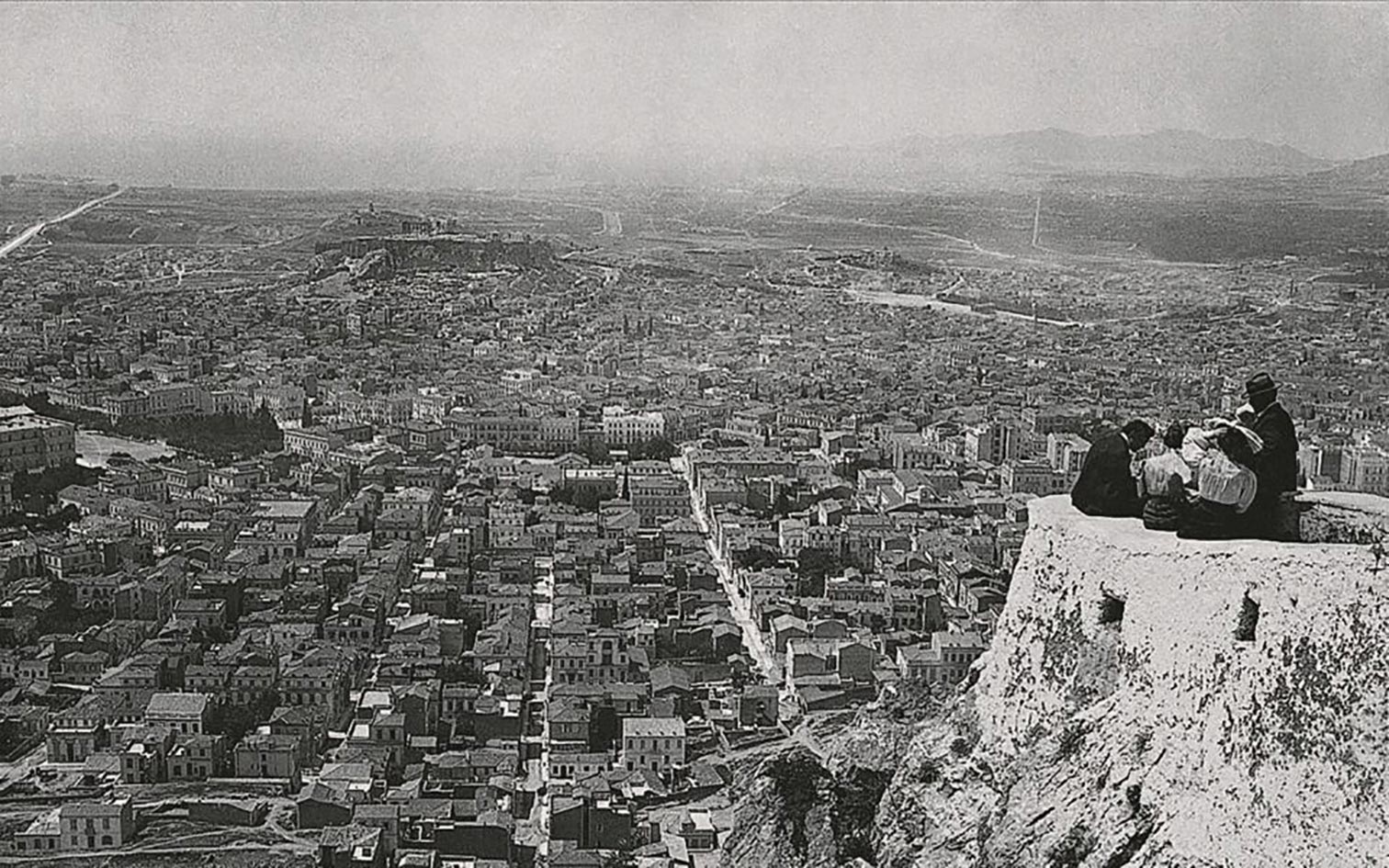
Athens as seen from Lycabettus Hill in 1906. The city had already started changing before the modernization boom introduced by Mayor Spyros Mercouris.
© Carl Oscar Halldin/Stockholm Public Library
The year 1896, following the first modern Olympic Games, was defined by a widespread sense of optimism in Athens, a rather insignificant city of just 130,000. It was a time when “little Greece” began cultivating aspirations of victory, reaching out to realize the Great Idea by reclaiming the territories of the Byzantine Empire – including Constantinople, the center of Hellenism. The overwhelming majority of Greeks believed the plan to be feasible, with hundreds of volunteers going off to fight in the Greco-Turkish War of 1897, explains Roderick Beaton, Emeritus Koraes Professor of Modern Greek and Byzantine History, Language and Literature at King’s College London, pre-eminent authority on Greek history and philhellene, in the opening scene of a new documentary by Maria Iliou.
Lasting just one month and ending in Greece’s defeat, the campaign also became known as “Black 97” and the “Unfortunate War.”
In “Athens and the Great Idea 1896-1922,” being screened by the Benaki Museum of Greek Culture in Kolonaki through April 23, the renowned filmmaker, her historical adviser Alexander Kitroeff, professor of history at Haverford College in Pennsylvania, and the rest of her team pick up the thread of the narrative at the revival of the Olympic Games and the newfound confidence of the Greeks, who became increasingly convinced that the ancient Greek spirit and the Byzantine tradition would be key to unlocking the vision of “Greater Greece.”
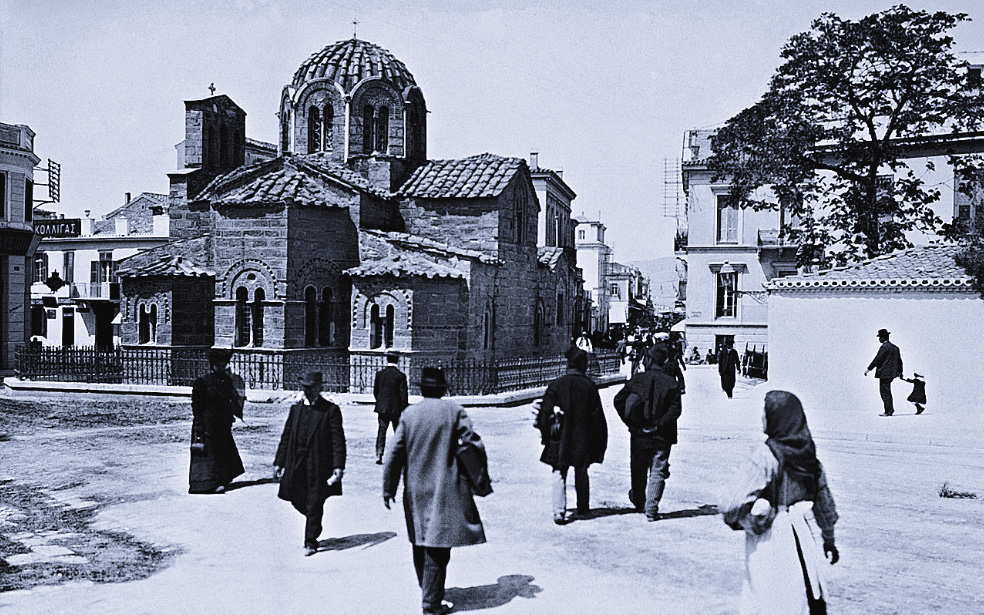
The Church of Agioi Theodoroi at Klafthmonos Square in the early 20th century looks almost like it is in the country instead of the city center.
© Carl Oscar Halldin/Stockholm Public Library
Covering a quarter of a century and running for 90 minutes, the film impresses with the sheer density of its narrative, thanks to the concise manner of its featured speakers and the rich archival material gleaned from three continents. The film and photographs – much previously unpublished – were discovered in the United States, Australia and different parts of Europe.
It covers everything from the economic boom at the turn of the new century; the landmark Syngrou Avenue project of 1902; the death of Pavlos Melas on the Macedonian front in 1904; the acquisition of the Averoff battleship, a symbol of the Great Idea, in 1909; the first government of Eleftherios Venizelos in 1910; the Balkan Wars; the liberation of Thessaloniki and Ioannina; the death of King George I in 1913; the rift between Venizelos and King Constantine I; the two governments in Athens and Thessaloniki; the National Schism and the bloody clashes between the Venizelists and the monarchists; and the Asia Minor Campaign, the collapse of the front and the violent expulsion of the Greeks – the final chapter that changed the country forever.
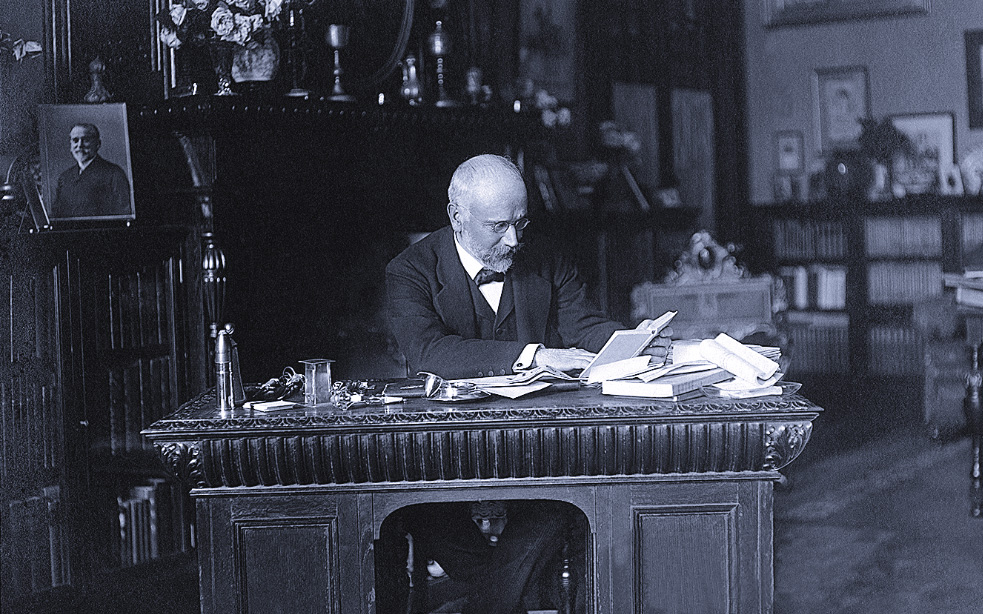
Eleftherios Venizelos is seen at his desk in a photograph from the early 1900s.
© Benaki Museum Historical Archives
Beside these historical milestones, Iliou treats her viewers to the “lesser history” too, to developments in the arts and letters, to the everyday stories of ordinary people living in a rapidly changing city. We see “primitive” Athens in the late 19th century, with small, squat houses, dirt streets, horse-drawn carriages and trams. We see how European fashion and savoir-faire shaped the “good society” and how Mayor Spyros Mercouris thrust the city into the modern age. We see Athens get proper roads and lights, first powered by gas and then electricity, the first telephones and the excavations of the ancient Kerameikos cemetery. There’s the well-heeled Athenians strolling along Vassilissis Amalias Avenue and through Panepistimiou Street’s “Dardanelles,” as the passage separating the kafenio of Yiannakis – a royalist watering hole – and the pasty shop Dore – favored by the Venizelists – was known. There’s the elegant townhouses and shops of Stadiou Street, excursions to the sea at Neo Faliro and the Aktaion Hotel, the introduction of musical theater (operettas and revues) and the songs of Theophrastos Sakellaridis that took Athens by storm.
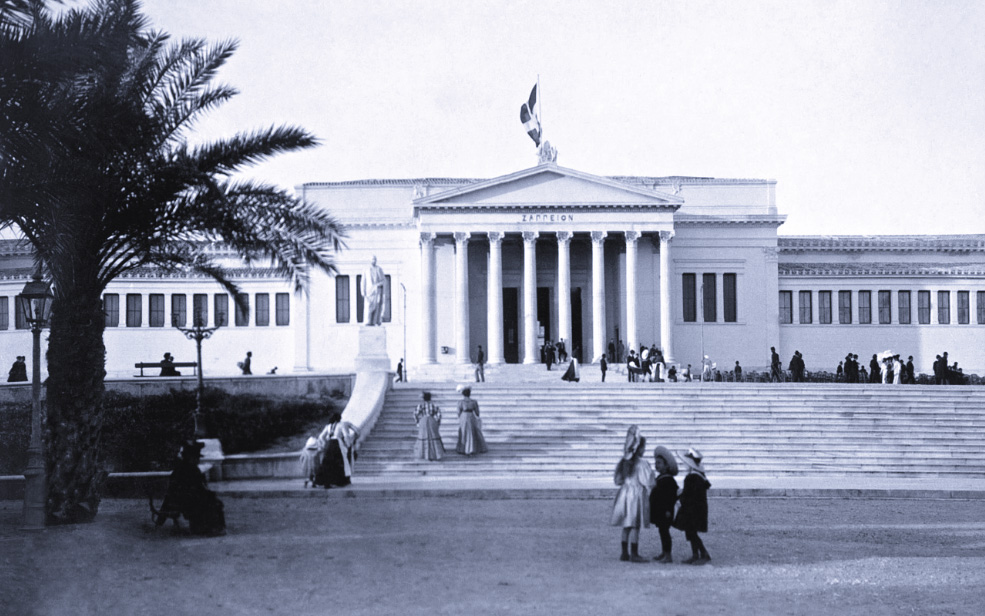
Zappeion Hall at the dawn of the 20th century was a symbol of modernity and hosted the city’s earliest industry-related fairs and exhibitions.
© Carl Oscar Halldin/Stockholm Public Library
Apart from Beaton and Kitroeff, the documentary also features Katherine Fleming, Hellenic culture and civilization professor at New York University, Christina Koulouri, Panteion University history professor and rector, Jim Wright from the American School of Classical Studies, British academic and diplomat Sir Michael Llewellyn-Smith, Kathimerini journalist Nikos Vatopoulos, and Marina Lambraki-Plaka, the former director of the Greek National Gallery, who was interviewed by Iliou shortly before her death last June. Benaki board member Despina Geroulanou and National Historical Museum curator Philippos Mazarakis-Ainian share family stories of the National Schism.
Iliou spent 20 years gathering the material for this project.
“The majority of the films and photographs are very rare indeed and quite intoxicating; they don’t just transmit information, but stir all sorts of thoughts and emotions,” says Iliou, whose previous work includes the critically acclaimed “The Journey: The Greek American Dream” (2007), “Smyrna, the Destruction of a Cosmopolitan City – 1900-1922” (2012) and “From Both Sides of the Aegean, 1922-1924” (2012).
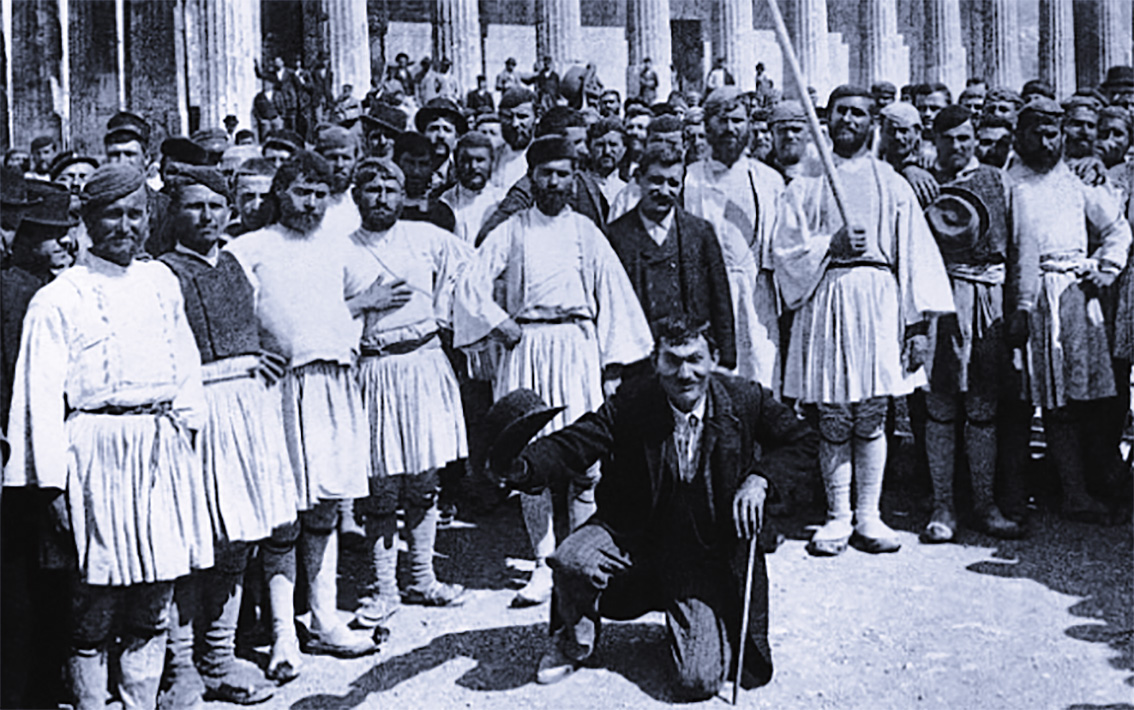
Athenian volunteers before marching off to the Greek-Turkish War in 1897.
© US Library of Congress
“In this film, as in the previous ones, we wanted to tell the story in a different way, from a fresh perspective, by combining the big events with everyday moments from the people of that era. Roderick Beaton has made a great contribution with his sober assessment of the National Schism. He actually assigns blame to Venizelos for something few will even think of mentioning today: the French-British-led Allied offensive against Greece. We have tried to be precise and fair about the Greek Vespers but also the 1920 assassination attempt on Venizelos, to chapters of terror for the Venizelists and the royalists respectively,” says Iliou.
“Basically, though, the film pursues two strands: war and death on the one hand, and the joy of life on the other. Both had a very strong presence during that period of myriad cataclysmic changes,” she adds.
“Athens and the Great Idea 1896-1922” and its accompanying exhibition of photographs are being hosted at the Benaki Museum of Greek Culture (1 Koumbari & Vassilissis Sofias, benaki.org).
General admission costs 9 euros for either the film or the show, or 15 euros for both.
Explore the timeless beauty of the...
Six Athenians tell us about their...
Discover how Christos, Athens’ master souvlaki...
Discover how ancient Greek architecture inspired...